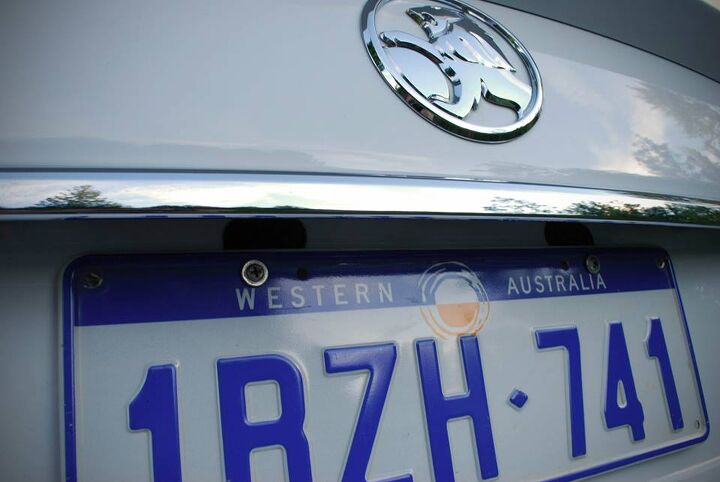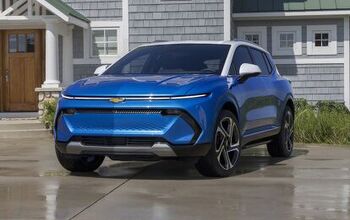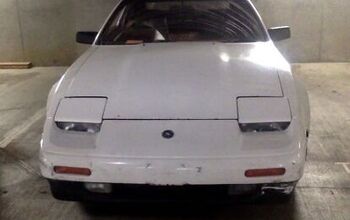11 Views
While You Were Sleeping: Oregon To Allow Lane Splitting, Australia Opening Borders and Andy Wilman Quits

by
Mark Stevenson
(IC: employee)
Published: April 24th, 2015
Share
After their automotive industry has been slowly devastated over the last decade, Australia may open its borders to private imports of new and like-new cars.
- Top Gear producer Andy Wilman quits show (BBC)
Goodbye, Andy. We’ll see you soon. - Nissan Australia boss frustrated with uninformed politicians (CarAdvice)
Holy shit, Australia has no idea what it wants to do with its auto industry - Oregon Just Got Closer to Legalizing Lane-Filtering (Asphalt and Rubber)
You might want to look at investing in motorcycle dealerships in Portland - Concept car turns into a party pad for chill millennials (The Verge)
Replace ‘chill millennials’ with ‘license-less ADHD ego whores’ and its slightly more true

Mark Stevenson
More by Mark Stevenson
Published April 24th, 2015 6:20 AM


































Comments
Join the conversation
I'm glad to see another state finally make progress on legalized lane splitting. Texas had a proposed lane splitting bill a few years ago that died in committee, and there's another proposal for this summer's session, but I don't know that it will make any more progress than the last one did. I like the concept of lane splitting, though I wonder how it would work in practice the first few years after being allowed in a new state.
There has been articles in our local Australian media for several months now regarding the to'ing and fro'ing with the auto industry and the importation of vehicles here. From what I can interpret from all of the articles, you have the established auto retailer with dealerships across the nation concerned about competition. They like the UAW and US vehicle manufacturers will fabricate and overplay their comments to protect their domain. The importation of vehicles is in regard to having parallel importation and the importation of vehicles by individuals. One comment I read that "unsuspecting" people might import a car and not have the warranty honoured is quite niave. The reality now is, like in the US, the existing auto industry doesn't want to have additional competition. The government we have wants to offer the consumer the best possible choice and price for vehicles. I don't think we will end up like Kiwiland, but I do foresee the reduction in the cost of new vehicle ownership here due to the added competition and the removal of the current taxes. For example a Toyota Corolla can be had now in Australia (without the 5% import tax) for AUD $19 000 or approx. USD $14 750. Our cheapest vehicles can be have for under USD $9 000. The same goes for our midsize pickups, we can get into a midspec Mitsbishi Triton or Navara, diesel twin cab 4x4 for around USD $22 000. These prices is why there is a chicken tax on your pickups. Like our Australian auto industry the US auto industry doesn't like fair competition. This means effort on their part. These prices were unheard of a decade ago. In 1990 a Corolla cost $19 000AUD. Car prices have dropped. The vehicles that will be imported under the proposed changes will be the massively expensive vehicles by the rich. The average Joe will not have the resources to import and the established auto retailers will have to find ways to become more competitive. This move is great for Australia. We already have a much larger choice of vehicles than the US and our prices are not really expensive compared to the more controlled vehicle markets like the US and EU. As can be seen our higher volume vehicles are cheaper.
I realise that as an Aussie TTAC reader I am expected to know everything about news that affects us. I don't. The new proposal to allow individuals to import new cars directly immediately made me think of my American friends who can fly to Germany to pick up their new BMW and do some autobahn bashing before taking it home, or watch their own Ferrari get assembled in Italy while basking in the sun enjoying good coffee and the dolce vita. Then I thought it through. To pick up my new right hand drive German luxury cream puff at the manufacturer, I will have to spend some "quality" time in South Africa. No offense to my Southern Hemisphere mates but that does not fit my fantasy.
@pch101. All Australia's (and Britain's) BMW 3 series and Mercedes C-class are already built in South Africa.